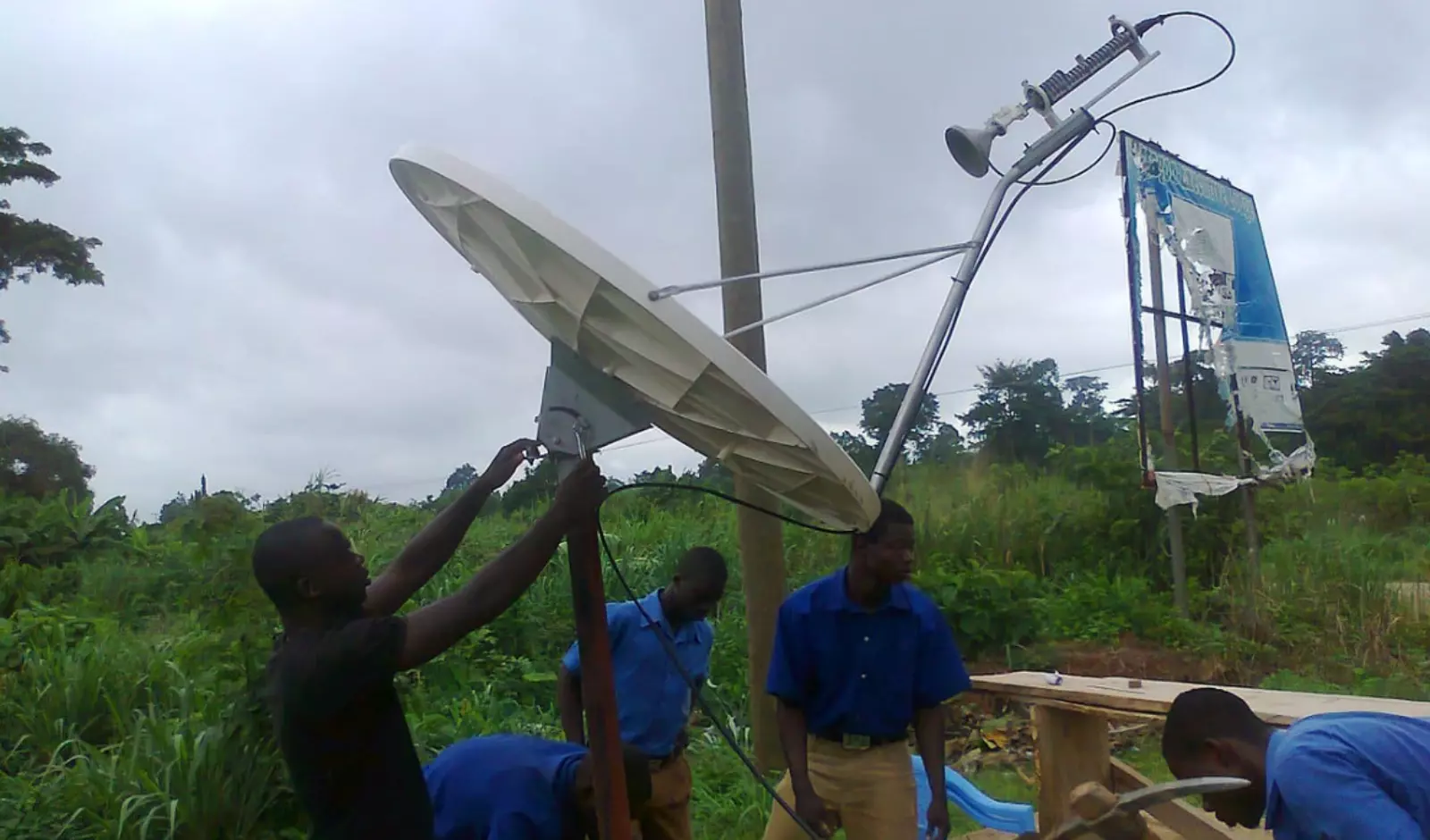Living in a rural area undoubtedly has its charms – the tranquility, fresh air, and natural beauty.
However, there’s one common challenge that many rural residents face: getting a reliable television signal.
Remote locations often struggle with weak TV reception due to their distance from broadcast towers and geographical obstructions.
Fortunately, there are several effective strategies to enhance your TV reception in rural areas.
In this article, I’ll walk you through these steps to ensure you can enjoy your favorite shows without interruptions.
Let’s move on…
1) Choose the Right Antenna
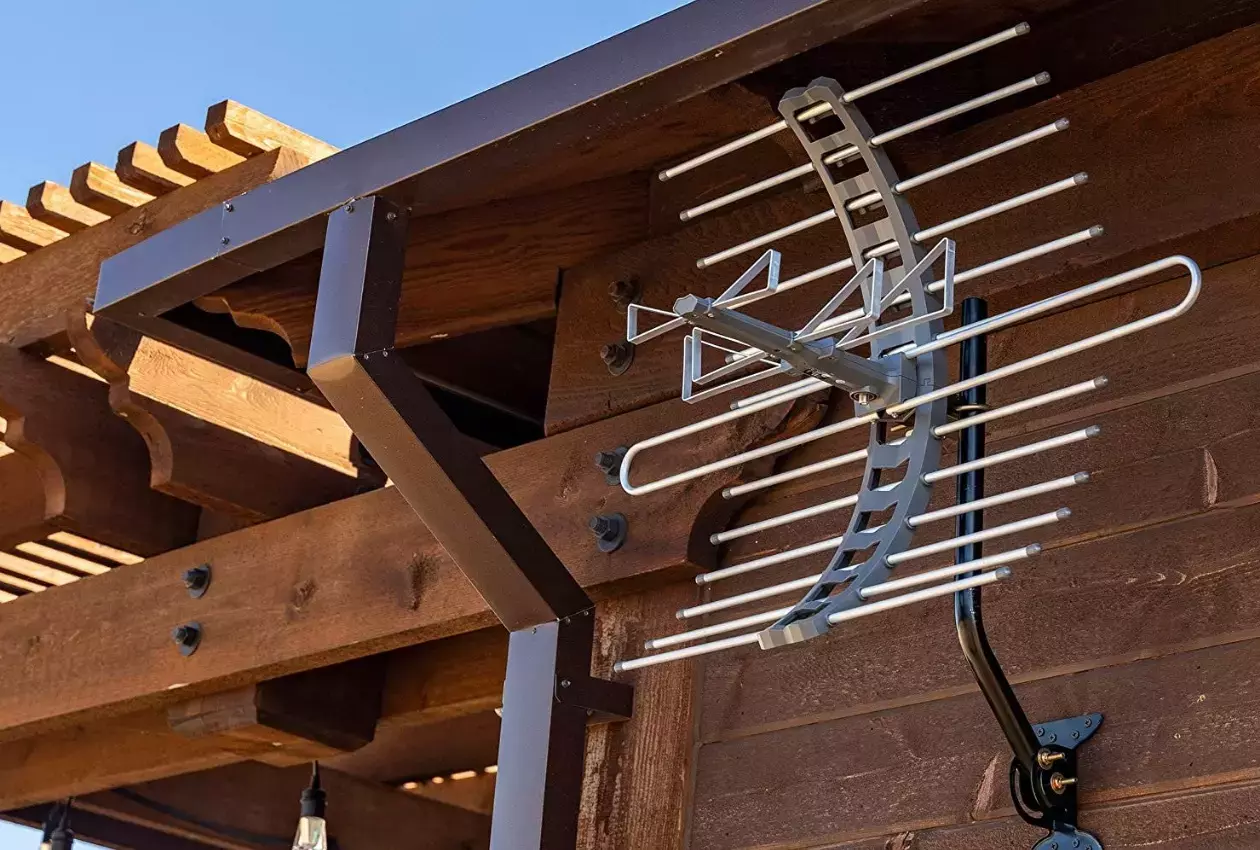
The key to improving TV reception in rural areas begins with selecting the right antenna.
While indoor antennas may suffice in urban settings, rural areas often require outdoor antennas for the best results.
Here are some tips:
- Outdoor Antennas: Outdoor antennas are generally more effective for rural locations as they can be positioned higher and away from obstructions.
- Long-Range Antennas: Look for antennas designed for long-range reception, such as the Antennas Direct 8-Element Bowtie, RCA Outdoor Yagi, Clearstream 4Max, or Channel Master CM-4228HD.
2) Try Using a Signal Booster
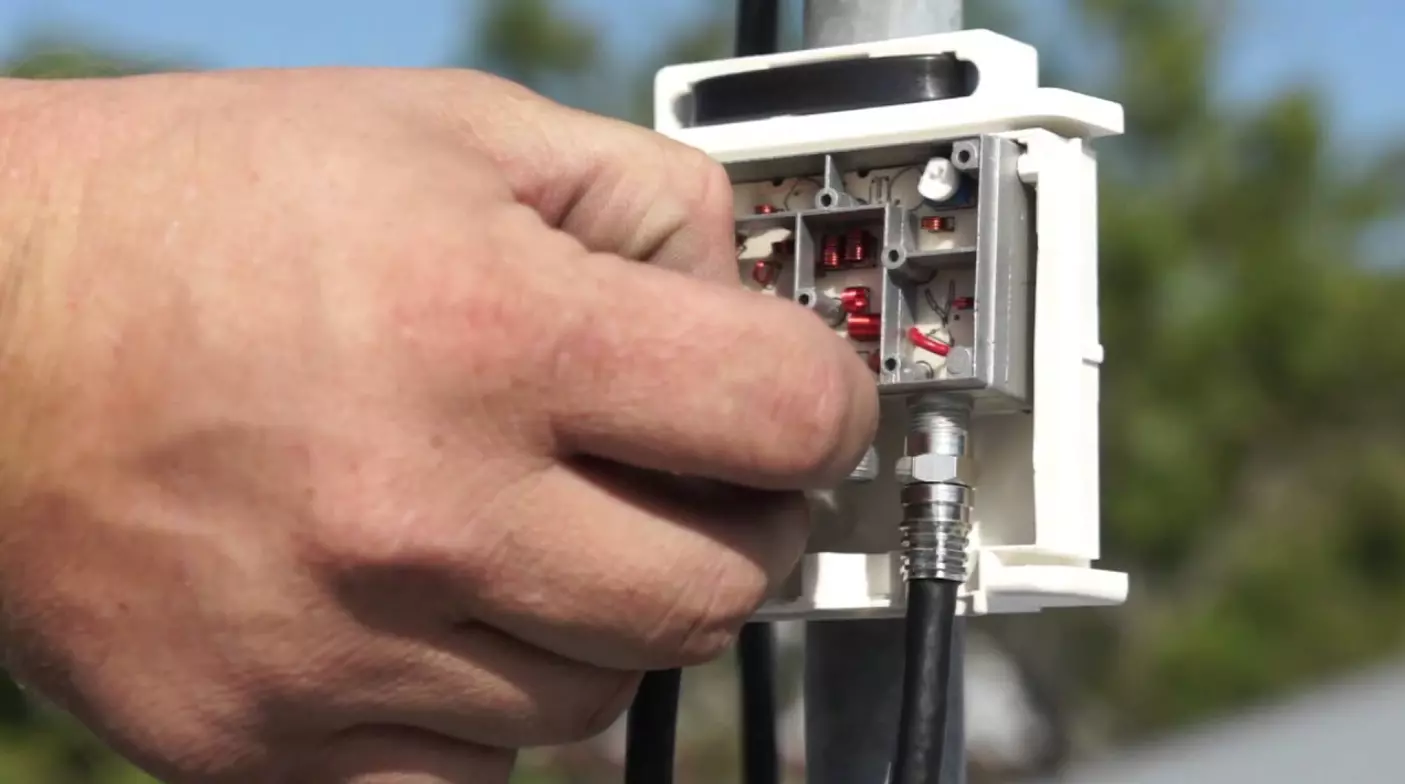
If you’ve got the right antenna, you might want to think about using a signal booster.
Signal boosters do the job of making TV signals stronger and more dependable. They take the signals your antenna grabs and make them even stronger before sending them to your TV.
This boosted signal ensures you get a clearer and steadier picture, even when the reception isn’t perfect.
But here’s a word of caution: When you get a signal booster, make sure to install it correctly. Just follow the installation instructions that come with it.
WARNING: Signal boosters can sometimes make interference worse and create more issues if not used the right way. Only use one if you have a long cable or a splitter between your antenna and TV. Avoid cranking up the signal too much, as it could harm your TV or tuner.
3) Elevate Your Antenna
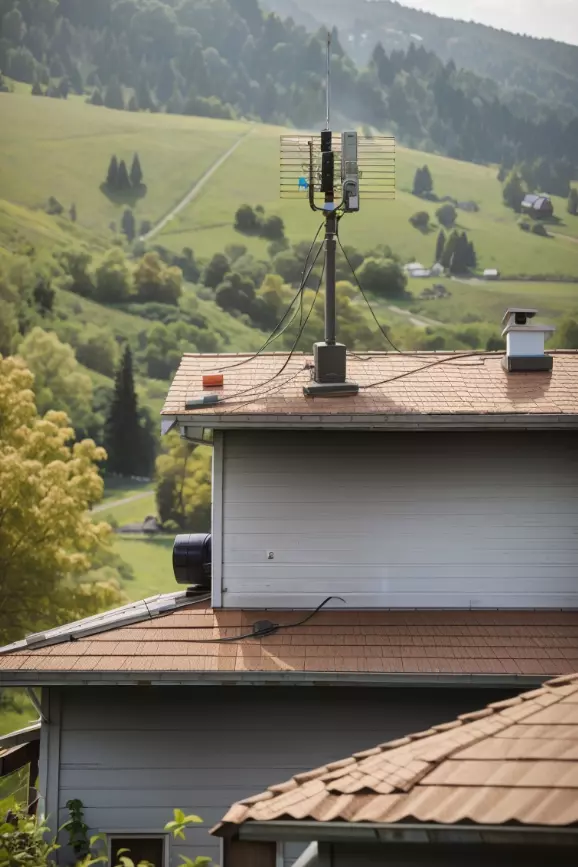
One of the fundamental strategies to significantly improve TV reception in rural areas is to elevate your antenna to a higher position.
This means putting your antenna in a spot where it can “see” the broadcasting towers without any obstacles in the way.
Here’s a step-by-step guide on how to do it:
- Roof or Tower Installation: Ideally, mount it on a sturdy mast or pole, such as the roof of your house or a tall tower.
- Terrain Consideration: Take into account the surrounding landscape. Position your antenna where it has the fewest obstructions between itself and the towers.
Trees, hills, and buildings can all interfere with signal reception, so choose an installation spot that minimizes these obstacles.
4) Properly Aim the Antenna
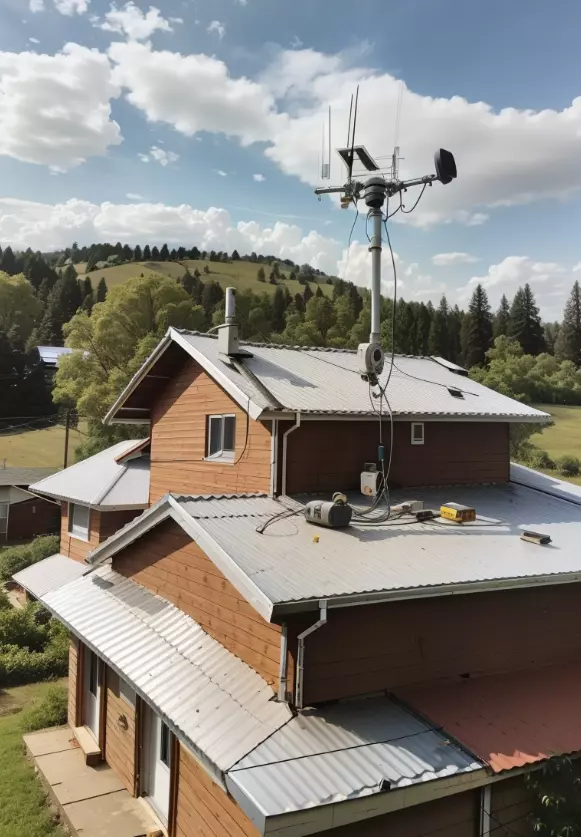
Pint your antenna precisely in the direction of the nearest broadcast towers.
To determine the correct direction, you have a couple of options:
Either you can use a compass or a signal strength meter.
A simple compass can help you identify the general direction of the towers. Most broadcast stations are clustered together on a single tower or in a particular area, so once you find one, the others are likely nearby.
However, for a more accurate approach, consider using a signal strength meter. These devices can pinpoint the exact direction of the strongest signal, helping you fine-tune your antenna’s orientation for optimal reception.
That’s it, folks! We hope it helps improve your TV reception signal in your rural area!
F.A.Q.s
Q: Why is TV reception so poor in rural areas?
TV reception can be poor in rural areas due to their distance from broadcast towers, geographical obstacles like hills and trees, and the lack of advanced infrastructure.
Q: What type of antenna is best for improving TV reception in rural areas?
A high-gain, directional outdoor antenna is often the best choice for rural areas as it can capture weak signals and minimize interference.
Q: How can I reduce interference and noise in my TV signal in rural areas?
You can reduce interference or TV static by using high-quality cables, installing a signal amplifier, and eliminating sources of electronic interference in your home.
Q: Can weather conditions affect TV reception in rural areas?
Yes, severe weather conditions like heavy rain or snow can temporarily degrade TV signals, but this is usually not a long-term issue.

Abdul Kader, a handy guy and experienced founder of a TV repair shop in Gulshan, Dhaka, Bangladesh. He is mainly an expert in understanding and repairing different types of issues with Smart TVs and providing helpful insights on how to keep them in good working order. Read his Full Story.

